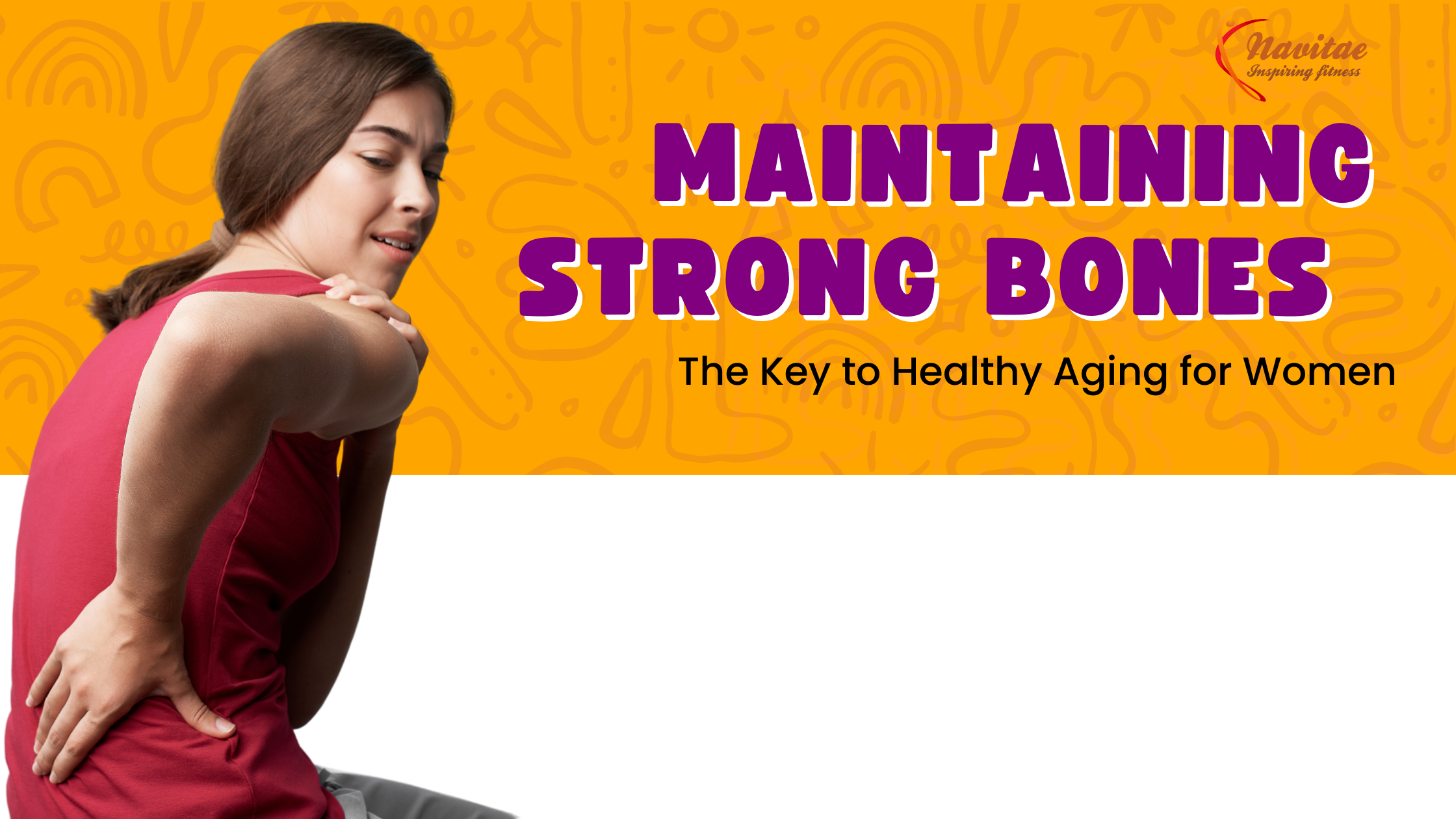
Maintaining Strong Bones: The Key to Healthy Aging for Women
As women, taking care of our bone health becomes increasingly important as we age. In my recent session on bone health, I discussed how women, particularly those over 35, can preserve their bone strength and maintain a healthy lifestyle. Bone health is often overlooked, but it’s critical for maintaining mobility, independence, and overall well-being as we age. Here’s a recap of the key points shared during the session.
Estrogen plays a crucial role in maintaining bone health, especially in women. Around the age of 35, estrogen levels begin to decline, leading to irregular periods and eventually menopause. During this time, estrogen helps maintain a balance between osteoblasts (bone-building cells) and osteoclasts (bone-resorbing cells). When estrogen decreases, bone density can decline, leading to pain, fractures, and conditions like osteopenia and osteoporosis. For women going through menopause, maintaining bone health through a balanced diet, regular exercise, and lifestyle changes becomes vital.
Bone growth slows down around the age of 30, and after 35, bone density begins to decline. This process accelerates around the age of 50, often leading to symptoms like back pain, knee pain, and a loss of strength. However, it’s never too late to start focusing on bone health. Women can take preventive measures to slow down this process and maintain strong bones. I encourage women to begin focusing on their bone health early and make lifestyle changes before they experience noticeable problems.
One of the most effective ways to promote bone health is through strength training. It’s particularly important for women over 35, as it helps increase bone density and prevent bone loss. Many women may feel intimidated by strength exercises, especially if they’re not familiar with gym equipment, but bodyweight exercises are a perfect alternative. These exercises—like squats, lunges, and push-ups—can be done at home, are highly effective, and reduce the risk of injury. Starting with bodyweight exercises helps build muscle strength, joint stability, and improves overall bone health.
If you’re new to strength training or prefer not to go to the gym, bodyweight exercises are a great starting point. These exercises engage the muscles in a natural, effective way and can be done anywhere—at home, outdoors, or even while traveling. They’re also safer than using dumbbells or gym machines, as they reduce the risk of injury by utilizing the body’s own center of gravity for stability.
I often recommend these exercises to women in my community programs, as they are simple to incorporate into any routine and can be done at your own pace.
For women with thyroid issues, such as hypothyroidism, bone health needs extra attention. Hypothyroidism can lead to bone loss, so it’s crucial to approach strength exercises with caution. If you have thyroid issues, consult with your healthcare provider before starting any new exercise regimen. Bodyweight exercises are an excellent option, but ensuring you have the right guidance is important for managing both bone and thyroid health.
Nutrition plays a key role in supporting bone health. Women should focus on consuming calcium-rich foods, such as dairy, green leafy vegetables, nuts, and seeds. Vitamin D is also essential for calcium absorption, so it’s important to get enough sunlight exposure. A balanced diet, combined with regular strength exercises, can significantly impact bone density and overall strength.
As we age, it’s essential to keep track of our bone health. I highly recommend getting a DEXA scan to assess bone density, especially for women over 35. A DEXA scan provides valuable information about your bone health and can help detect early signs of bone loss. Understanding the results of the scan, including the T and Z scores, will help guide you in making informed decisions about your health.
The key to maintaining healthy bones is starting early and staying consistent. Women over 35 should focus on strength exercises, improve their nutrition, and get regular checkups to monitor their bone health. Whether you’re just beginning your journey or have been active for years, it’s never too late to start taking care of your bones.
I encourage you to take the first step toward better bone health today. Focus on strength training, eat a calcium-rich diet, and get regular checkups. Your bones—and your future self—will thank you.
If you want to learn more about how to maintain strong bones and take a proactive approach to your health, subscribe for more tips and preventive health information.
Stay strong, stay active, and prioritize your bone health!
— Ruma,
Women’s Health Specialist,
Nutritionist, and Certified Fitness Trainer